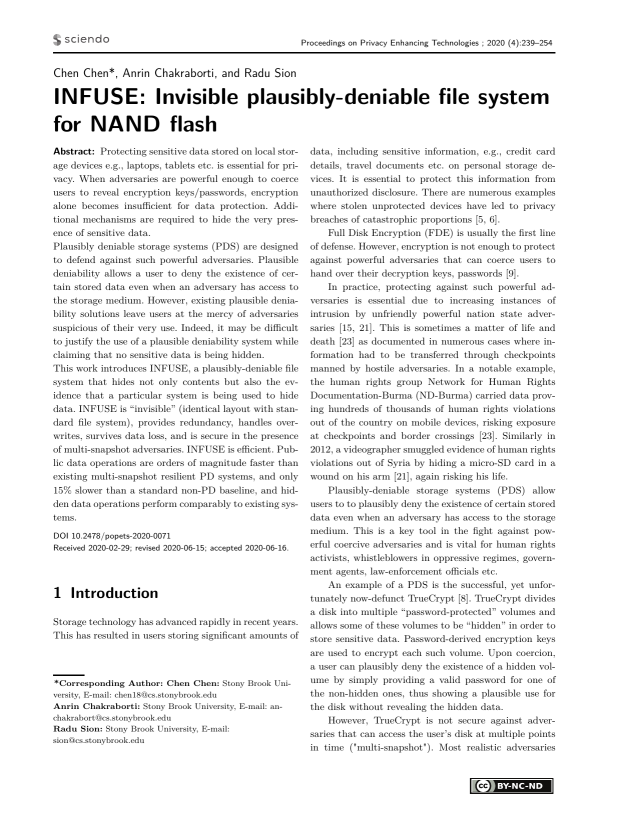INFUSE: Invisible plausibly-deniable file system for NAND flash
Authors: Chen Chen (Stony Brook University), Anrin Chakraborti (Stony Brook University), Radu Sion (Stony Brook University)
Volume: 2020
Issue: 4
Pages: 239–254
DOI: https://doi.org/10.2478/popets-2020-0071
Abstract: Protecting sensitive data stored on local storage devices e.g., laptops, tablets etc. is essential for privacy. When adversaries are powerful enough to coerce users to reveal encryption keys/passwords, encryption alone becomes insufficient for data protection. Additional mechanisms are required to hide the very presence of sensitive data. Plausibly deniable storage systems (PDS) are designed to defend against such powerful adversaries. Plausible deniability allows a user to deny the existence of certain stored data even when an adversary has access to the storage medium. However, existing plausible deniability solutions leave users at the mercy of adversaries suspicious of their very use. Indeed, it may be difficult to justify the use of a plausible deniability system while claiming that no sensitive data is being hidden. This work introduces INFUSE, a plausibly-deniable file system that hides not only contents but also the evidence that a particular system is being used to hide data. INFUSE is “invisible” (identical layout with standard file system), provides redundancy, handles overwrites, survives data loss, and is secure in the presence of multi-snapshot adversaries. INFUSE is efficient. Public data operations are orders of magnitude faster than existing multi-snapshot resilient PD systems, and only 15% slower than a standard non-PD baseline, and hidden data operations perform comparably to existing systems.
Copyright in PoPETs articles are held by their authors. This article is published under a Creative Commons Attribution-NonCommercial-NoDerivs 3.0 license.

